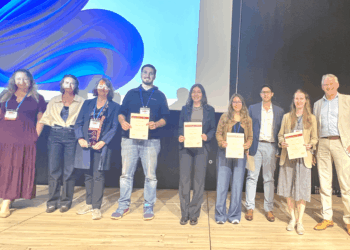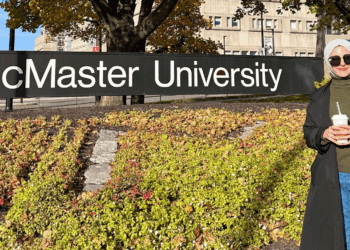Magdalena Sznurkowska and Irene Casanova Salas are the 2024 recipients of EACR-AstraZeneca Postdoctoral Fellowships, funding that is awarded for a period of up to three years to support excellent postdoctoral researchers in laboratories throughout Europe and the world.
You can learn more about each of our recipients here. We recently caught up with them to hear about the progress they have made in their research during this first year.
 Irene Casanova Salas
Irene Casanova Salas
Can you tell us about the topic of the research you are undertaking during your fellowship?
My current research focuses on monitoring adaptive transcriptomic changes during therapy resistance and disease progression using a novel extracellular vesicle (EV)-based liquid biopsy assay. This innovative approach will be applied to larger cohorts of patient samples and patient-derived xenograft (PDX) models to identify biomarkers of treatment response and disease evolution. This minimally invasive method aims to provide real-time insights into cancer progression and resistance mechanisms.
What have been the highlights from the first year of your fellowship?
Giving my talk at the EACR 2024 Annual Congress! And publication of preliminary work in Cancer Cell and European Urology. Among others, the design of custom panel for targeted sequencing, PDXs genomic and transcriptomic characterisation, dual ctDNA-EV-RNA isolation from a prospective cohort of more than 100 patients, and customisation of a human-specific capture for plasma-derived EV-RNA in PDX models.
At this stage, how do you think the fellowship will be beneficial to your research and your career?
The fellowship will be instrumental in completing my proposed research, enabling significant advancements in translational research with direct patient care impact. Establishing a bond with the EACR and its network, along with AstraZeneca, provides invaluable collaboration and resources. This partnership not only enhances the quality and reach of my research but also propels my career by integrating me into a prestigious scientific community. The opportunity to engage with leading experts and cutting-edge resources ensures my work is impactful, driving forward innovative treatments and therapies in patient care.
 Magdalena Sznurkowska
Magdalena Sznurkowska
Can you tell us about the topic of the research you are undertaking during your fellowship?
Enhertu is a potent new antibody-drug-conjugate used for the treatment of HER2-positive and HER2-low breast cancer, lung and gastric cancer patients. However, it is generally understood that specific genetic backgrounds of cells may play a role in response to therapies and that resistant cells may exist in tumours or arise in response to treatments. Here, we aim to further increase the prospects of Enhertu, by discovering the potential – currently hidden – mechanisms of resistance and sensitization, to reach higher response rates with combinatorial therapies.
What have been the highlights from the first year of your fellowship?
We received the Enhertu compound for in vitro and in vivo treatment. I started in vitro treatment to screen for resistant cell lines (acquired, intrinsic resistance and responding cell lines). We have been acquiring 2 new CTC cell lines and are establishing them for potential use in vitro and in vivo. I presented my research at the EACR 2024 Annual Congress, which was a great opportunity for my career.
At this stage, how do you think the fellowship will be beneficial to your research and your career?
The fellowship has been very beneficial, because the connection with AstraZeneca and its research leaders will enhance my translational skills, as well as broaden my field of expertise. Additionally, receiving this prestigious dellowship, and having a chance to present my work at the EACR Congress, was a great opportunity for enhancing my career prospects.
More about EACR-AstraZeneca Postdoctoral Fellowships
The aims of this funding are to support the career development of outstanding EACR members in the early stage of their careers, and to train the next generation of scientists engaged in innovative research in areas where AstraZeneca has demonstrated leadership through its pipeline and research programs. Learn more here.



 Irene Casanova Salas
Irene Casanova Salas Magdalena Sznurkowska
Magdalena Sznurkowska



